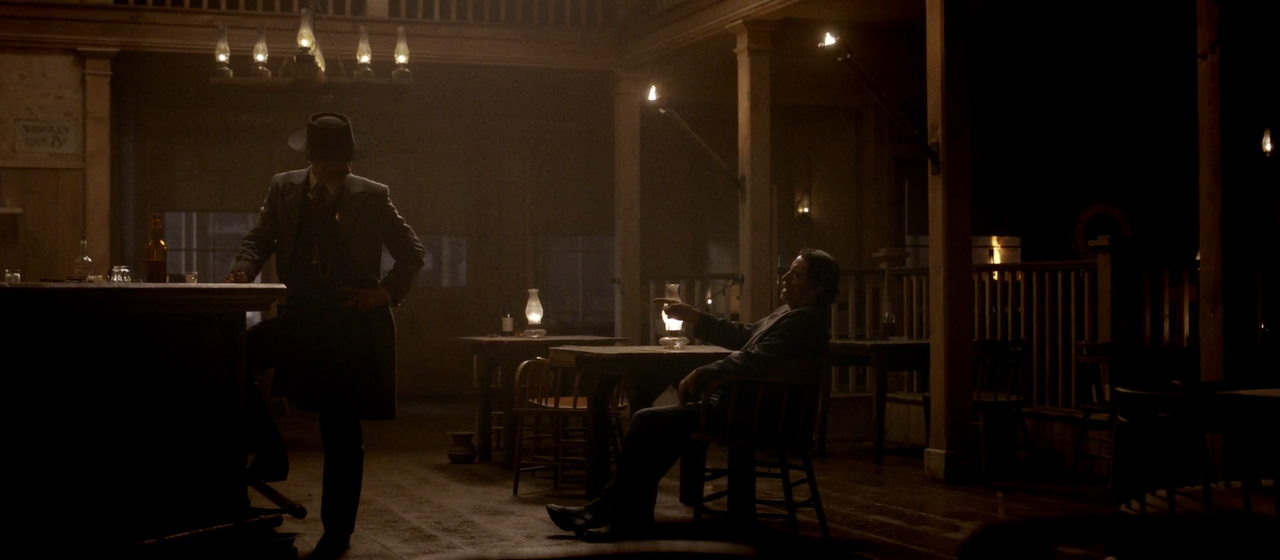
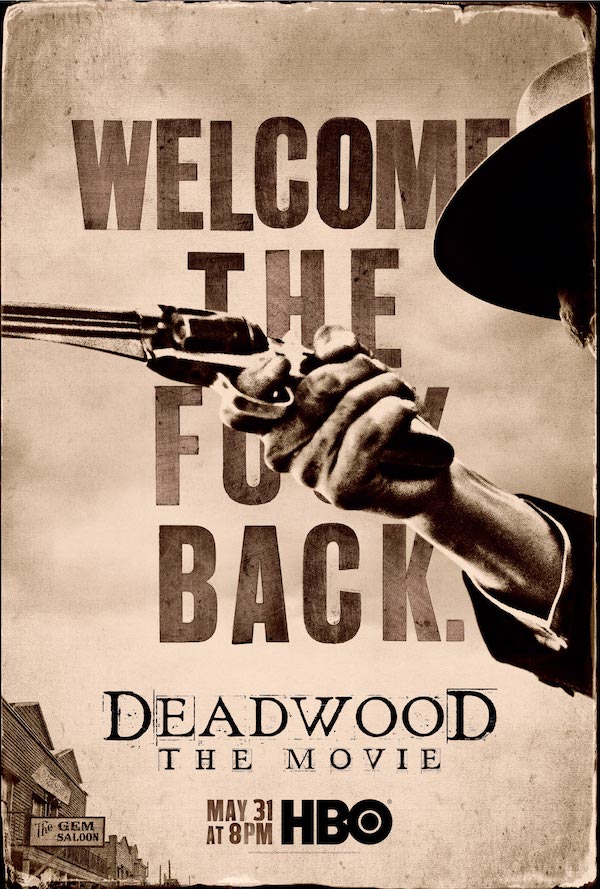
“All bleeding stops eventually.”
Containing a birth, a death, a wedding, and a funeral within its all too brief runtime, Deadwood: The Movie provides David Milch’s ebullient and ornery Western series a much-needed coda some thirteen years after its unceremonious cancellation. The film was directed by Daniel Minahan, who helmed a handful of episodes during the show’s run and is entirely in-sync with Milch’s storytelling proclivities.
Set a decade after the final episodes of the series, the film suggests that all of the bloodshed during the prior years of lawlessness was not in vain. That removing gold from the earth and replacing it with corpses while fighting tooth and nail to protect the fledgling town’s fragile ecosystem might have served a higher purpose. That America wasn’t merely built upon violent conquest, but small enterprise. Most of the original cast returns and many still abide in the town of Deadwood, which is celebrating South Dakota’s statehood and now boasts a railroad station, electricity, phonographs, a public telephone, and a fire brigade. But the occasion is soured by the arrival of George Hearst (Gerald McRaney), now a U.S. Senator, whose threatening presence loomed over the show’s final season. He’s now looking to buy a piece of land owned by Charlie Utter (Dayton Callie) in order to install telephone lines. When Utter refuses to sell out of spite and Hearst retaliates, the residents of Deadwood rally around Seth Bullock (Timothy Olyphant)—once again a U.S. Marshal as he was at the very beginning of the show—and stoically prepare to defend their community against the menacing profiteer.
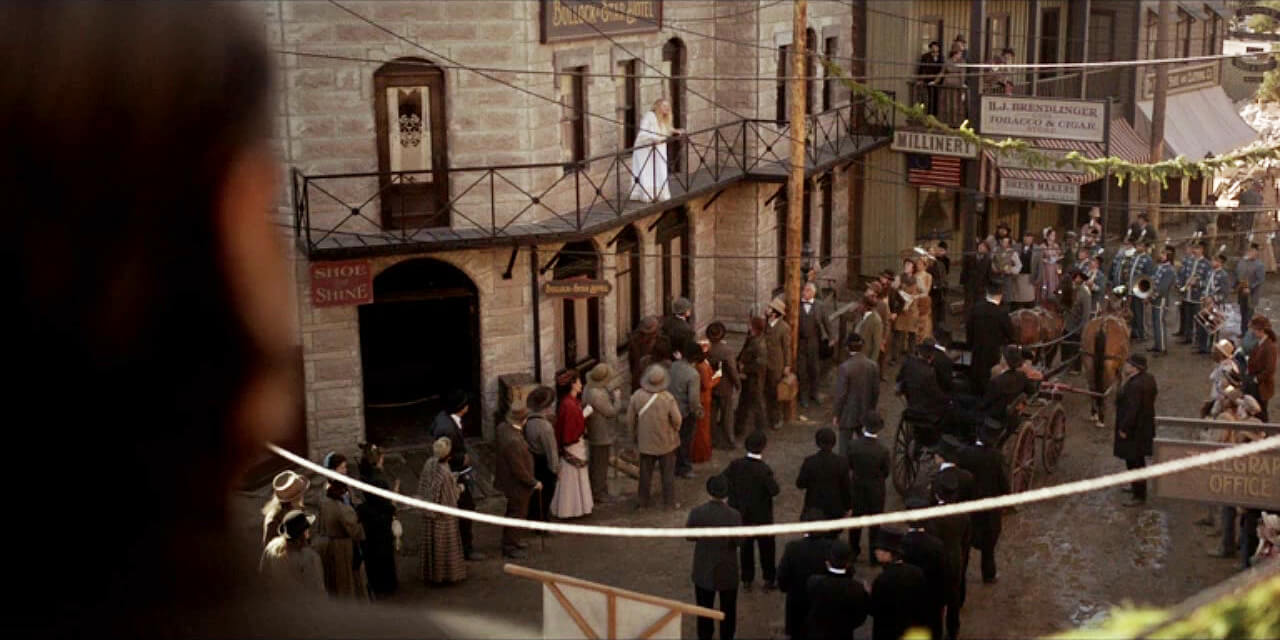
Reboots are commonplace today, and almost all of them suffer from actors trying to reinhabit their younger characters as well as a palpable sense of staleness to their cash-grab nostalgia. Deadwood skirts these issues by not only acknowledging the passage of time, but making it a primary theme. Indeed, Hearst is less a foe to the aging residents of Deadwood than time itself. As we settle into this updated world, we recognize the characters we know and love but quickly realize that they’ve all been sensibly and organically changed, as if Milch had been telling stories in his head for the past decade and was simply allowed to bring this most recent batch to the screen.
We’re all of us haunted by our own fucking thoughts. So make friends with the ghost, it ain’t going fuckin’ anywhere.
Letting these well-defined characters more or less dictate the story beats for him—the plot is mostly gravy, and essentially retreads the story that comprised the back half of season three—Milch hones his wonderfully profane, poetic, and archaic language (if memory serves, the first instance of the word “cocksucker” comes less than ten minutes in, and it is followed not long after by the use of “motherfuck” as a verb; and then wonderful curios like “fantods,” “bailiwick,” and “squoze” make apperances as well), crafting an ecstatic tapestry of intricate vignettes that manages to give each of a couple dozen characters their due while also offering piercing moments of philosophical conjecture that reveal the writer’s struggle with his own mortality (Milch was diagnosed with Alzheimer’s shortly before he commenced writing the script). As much as the film gives closure, it is awash in tantalizing loose ends, perhaps reflecting the writer’s own reluctance to let go of his craft.
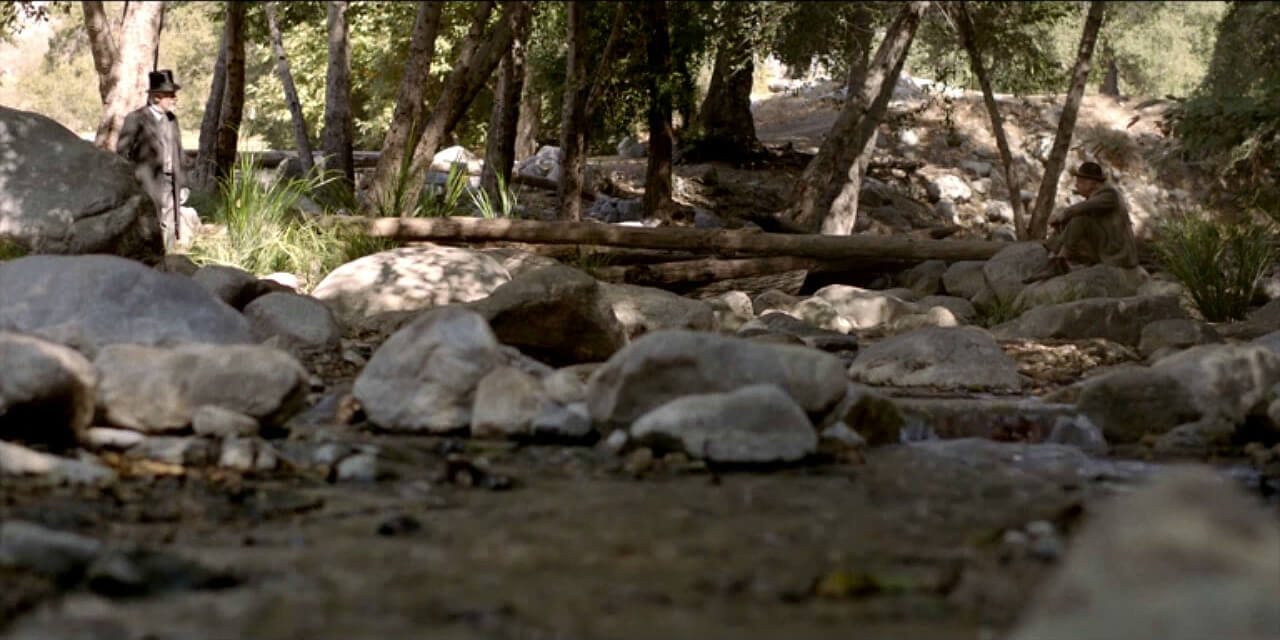
Only Milch, always so in-tune with these characters, could transition from Doc Cochran (Brad Dourif) thoughtfully ruminating on his conception of life (“I take us to be collections of cells, each aggregate a smaller, separate life inside us, and… and time slows. And finally stops.”) to camp patriarch Al Swearengen (Ian McShane), slowly dying from the effects of alcohol abuse, claiming that he doesn’t want to “go out a cunt.” Or have Jane (Robin Weigert) return to the old camp bar, liken its patrons to walruses, and suggest she wants to be buried beneath its floorboards. The rest of the actors—Molly Parker, Paula Malcomson, W. Earl Brown, Kim Dickens, Anna Gunn, John Hawkes, Leon Rippy, William Sanderson, Sean Bridgers, Brent Sexton, Jeffrey Jones, Franklyn Ajaye, Keone Young, Peter Jason, Cleo King; goodness there are so many distinctive personalities here!—all slip right back into character and take Milch’s refinements in stride, relishing the writer’s singular dialogue and intuitive grace notes. How touching when Jewel (Geri Jewell) rubs Al’s feet and sings him into eternal rest, but not before he delivers one of the all-time great final lines—a profane utterance that intimates a dogged rage against the dying of the light.
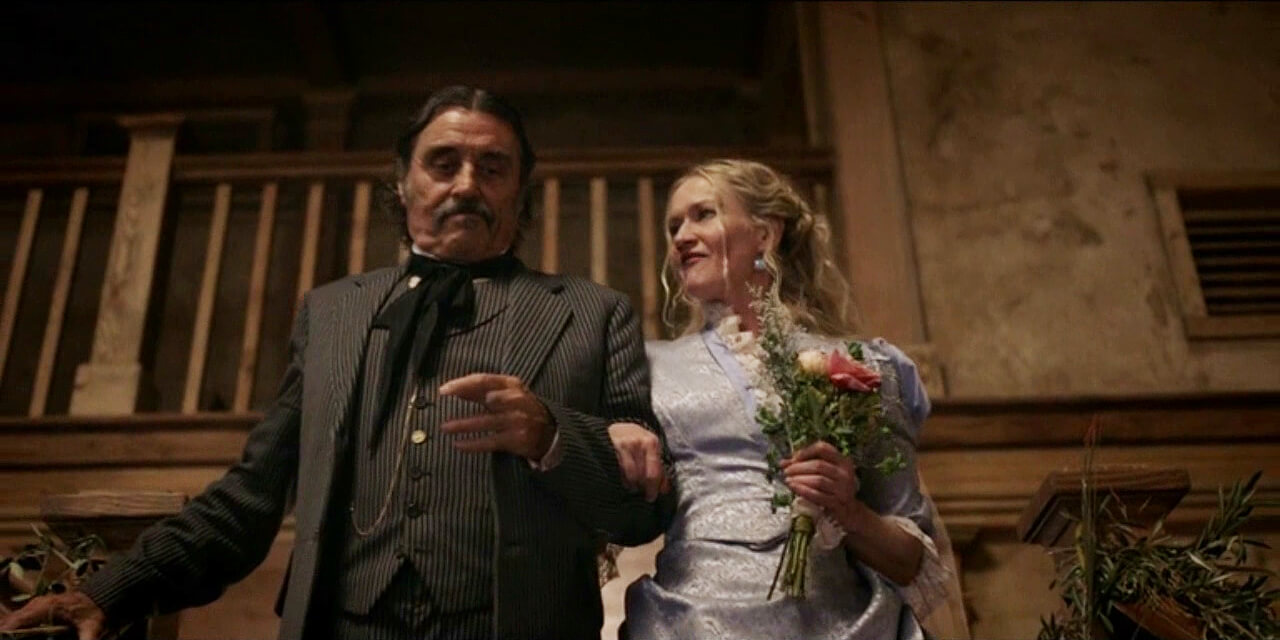
What makes Deadwood: The Movie such a perfect capstone to what may very well be the finest show to ever grace the small screen, is that it acknowledges the end is nigh and yet vehemently refuses to go gently. It doesn’t cheaply relive past glories, or try to fit in with the new trends, but honors the awesome collaborative creative effort with a bold and invigorating final chapter. In my estimation, David Lynch’s Twin Peaks: The Return may be the only years-later follow-up that entirely and emphatically justifies its own existence as clearly as Milch’s swan song.
For some thought-provoking reflections on this superlative envoi, read these terrific pieces by Matt Zoller Seitz (who later wrote The Deadwood Bible: A Lie Agreed Upon) and Darren Franich.